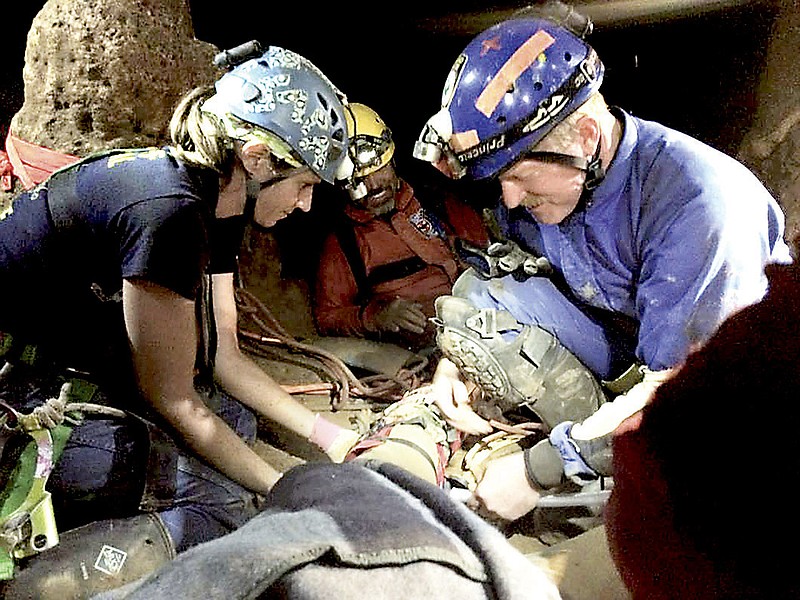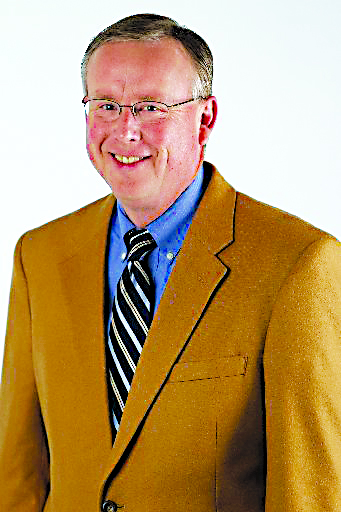Experienced auto mechanics know a warble in a V-8 engine is different - in cause and effect - than a rough idle in a four-cylinder motor.
One is normal, and the other is not.
How do they know?
Call it the three E's: eyes, ears and experience.
Dr. David Wharton, 60, an emergency department physician at Erlanger hospital for the past 30 years, has a similar skill set.
"I can usually look at somebody and tell within 30 seconds if they are sick or not," Wharton said. "Sometimes it's the expression on their face, or the type of complaint they have."
View other columns by Mark Kennedy
Like any good doctor, Wharton is not dismissive of a patient's symptoms, often ordering tests to confirm (or refute) his hunches. But he has seen enough sick folks to know, for instance, that chest pains in a 21-year-old are often different from chest pains in a baby boomer.
"With a 21-year-old, the chances of a heart attack are pretty low," he explained.
On the occasion of his 30th anniversary with Erlanger, we sat down with Wharton and his wife, Stephanie, to talk about the rigors of ER work.
Wharton, who is associate director of the emergency department at Erlanger, believes he is temperamentally suited to his job. Instead of seeing the ER work as an unending loop of human dramas (as seen on TV), Wharton sees it as daily set of problems to solve.
He sees himself as a diplomat, using his soft skills to administer fatherly advice along with state-of-the-art medicine. If a patient becomes a "regular" in the ER, for example, he might suggest they consult a trusted friend before coming in the next time.
"I pray for patience on the way to work, and forgiveness on the way home," he explained.
The son of a railroad worker, Wharton said he moved 10 times before his 12th birthday. He never stayed in any place long enough to form deep friendships, he said, which may account for his preference for emergency medicine and its here-today, gone-tomorrow patient culture.
"The ER is sort of set up that way," he said. "With a lot of patients, I don't know how things turn out [long term], and that's OK."
When Wharton moved to Chattanooga in 1986, after doing his residency at Emory University Hospital in Atlanta, he was the first ER doctor here specifically trained for emergency medicine - which is now the norm in a Level 1 trauma unit like Erlanger's.
He chose Chattanooga because it has a separate ER for children. Wharton, who has seven children and has opened his home to more than 70 foster children, says he finds pediatric emergency care draining because it can be so wrought with emotion.
Over the decades, emergency room medicine has become more sophisticated, Wharton explained. Helicopter ambulances and improvements in stroke care are two examples, he said. Technology has improved outcomes, too.
"I now have residents who can do ultrasounds to tell if a patient has a collapsed lung, a bowel obstruction or fluid around the heart," he said.
Meanwhile, Wharton often ventures outside the high-tech cocoon of his ER to practice in the field. He works with the Chattanooga Police Department SWAT team, is part of a Hamilton County cliff and cave rescue team, and is the chief medical officer for TN-1 DMAT, a state disaster medical assistance team.
He once administered an IV to a worker buried under five feet of earth when a trench collapsed. Another time, he performed a tracheotomy on a man who had fallen 90 feet off a cliff.
Meanwhile, he has treated innumerable neighbor children with cuts and scrapes on the kitchen table in his Lookout Mountain, Ga., home.
It's all part of the job, he said - a 24/7 commitment to use his medical training to help people inside and outside the hospital. In fact that's his one God-given gift, he said, "helping."
"When you're given training, you need to use it," he said. "That's what you do."
Contact Mark Kennedy at mkennedy@timesfreepress.com or 423-757-6645.

